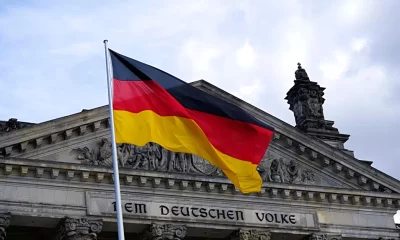Oppotunities
Germany issues 80,000 work visas in first half of 2024

Germany issued a total of 80,000 visas for employment purposes to foreign skilled workers between January and June 2024, according to recent reports. Of these, 40,000 visas were allocated to skilled workers, reflecting an increase of 3,000 compared to the same period in 2023.
This surge in visa issuance is closely linked to Germany’s acute labor shortages, particularly in skilled professions. The country is currently experiencing deficits in over 70 occupations, including transportation, manufacturing, construction, healthcare, engineering, and information technology.
An analysis by the German Economic Institute (IW) underscores the severity of these shortages, revealing that 570,000 jobs were unfilled in 2023. This workforce gap is adversely affecting Germany’s economic potential, with projections indicating a potential production loss of €74 billion by 2027 due to these unfilled positions. The IW report highlights, “For companies, this means that their production potential is being wasted. They could actually produce more, but they don’t have the employees to do so.”
In response to these challenges, Germany has introduced measures to address labor shortages. Notably, the country has relaxed certain immigration rules to facilitate the entry of skilled workers. The recently launched Opportunity Card aims to simplify the employment process for non-EU citizens seeking jobs in Germany.
Additionally, Germany is contemplating the introduction of tax rebates for foreign skilled workers as part of its “growth initiative” to attract more qualified professionals. According to a report by Nairametrics, the proposed tax rebates would offer 30%, 20%, and 10% reductions in taxes during the first three years of employment. This measure, still pending approval and official implementation, is designed to address ongoing shortages in various sectors. Federal Minister of Finance Christian Lindner has stated that these rebates will be available only during the initial three years of employment. He added, “We are creating a tax rebate for foreign professionals during their first three years in Germany. There will be rebates of 30%, 20%, and 10% for those people who come here as qualified specialists.”
The specifics of eligibility and criteria for these rebates are yet to be determined, and the measure will be reviewed after five years.

























